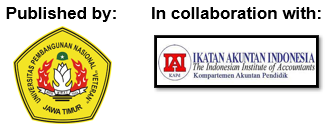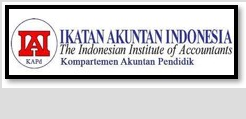Determinant of Earnings Management: Financial Distress, Tax Planning, Audit Quality, and Public Accountant Firm Size
DOI:
https://doi.org/10.33005/jasf.v6i1.386Keywords:
Audit Quality, Earnings Management, Financial Distress, public accountant firm size, tax planningAbstract
Profit can show the information to the public in making investment decisions. The motivation of management to practice earnings management is to attract external parties, one of which is investors by increasing profits (income creating) and tax motivation by decreasing profits (income decreasing). This study aims to determine the effect of financial distress, tax planning, audit quality, and public accountant firm size on earnings management in mining sector companies listed on the Indonesia Stock Exchange (IDX) for the 2016-2020 period simultaneously or partially. The sample used was purposive sampling from 29 samples with 145 observational data. The method used panel data regression analysis. The results showed that financial distress positively affects earnings management, meaning that when a company is in a financial distress condition, it tends to practice earnings management to make better financial statements. While tax planning and audit quality do not affect earnings management, the size of public accountant firms has a negative effect on earnings management.














